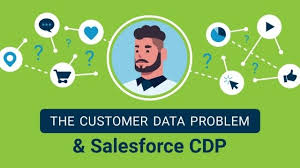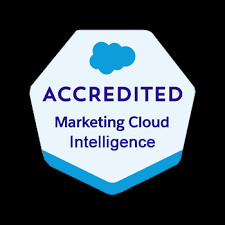What is a Customer Data Platform (CDP)?
A Customer Data Platform (CDP) is one of the most transformative tools in modern marketing. Salesforce CDP Explained. If you’re exploring whether your business needs a CDP and how to begin using one, this guide will walk you through the essentials. CDPs have quickly become a go-to solution in marketing, popping up in reports and strategies everywhere. According to the 2020 State of Marketing Report, 86% of marketers who use CDPs are maintaining or increasing their usage, making many companies wonder: Do we need a CDP too?
This insight serves as your step-by-step guide to help you determine whether your business should invest in a CDP, and how to successfully implement one for smarter marketing.
What is a CDP?
A Customer Data Platform (CDP) is a sophisticated piece of marketing technology designed to collect and organize customer data from various sources into centralized profiles. It helps businesses manage and draw actionable insights from data in real time, making it easier to personalize customer interactions.
A typical CDP includes tools for customer data management, marketing automation, multichannel campaign execution, and real-time interaction management. It’s particularly useful when businesses need a database of user-level data to understand customer behaviors across touchpoints.
Why Does Your Business Need a CDP? Salesforce CDP Explained
CDPs excel in four core tasks: collecting, unifying, activating, and analyzing data.
- Collecting Data
CDPs serve as a central hub for customer data from all sources, including CRM systems, service platforms, e-commerce engines, and marketing tools. This consolidated approach allows businesses to identify individual customers and track their entire engagement history across channels, a process called customer resolution. - Unifying Data
Once collected, the CDP resolves customer identities across devices by linking known data (like emails or phone numbers) with anonymous data (like cookies or device IDs). This process, called cross-device identity resolution, provides a full picture of customer journeys. - Activating Data
After creating unified profiles, CDPs make this data available to marketing platforms, enabling businesses to personalize customer experiences in real time. - Pulling Insights
With unified profiles, businesses can easily track customer journeys, gain insights, create audience segments, and craft lookalike audiences. This data-driven approach improves campaign performance and proves the ROI of marketing efforts.
Introducing Salesforce’s CDP: Data Cloud
Salesforce’s Data Cloud is a powerful CDP that integrates with Customer 360 to provide real-time customer profiles. It collects and unifies customer data in real time, ensuring businesses can deliver personalized customer experiences and foster stronger relationships.
Data Cloud is scalable and designed for businesses of all sizes, with built-in security, compliance, and privacy features through Hyperforce.
Benefits of a CDP
Beyond basic segmentation, CDPs offer three major benefits:
- Personalization: CDPs enable real-time personalized interactions across channels, improving customer engagement and satisfaction.
- Suppression: They help optimize marketing spend by suppressing audiences that have already made purchases, allowing marketers to focus on new customers.
- Insights: CDPs provide a comprehensive view of customers, enabling better segmentation and personalization across all touchpoints, from call centers to e-commerce platforms.
CDPs vs. CRM vs. DMP
It’s important to understand the distinction between different data tools. While CRMs focus on managing customer relationships and interactions, and Data Management Platforms (DMPs) handle anonymous data for targeted advertising, CDPs are designed to unify and activate first-party data for personalized marketing.
How to Choose a CDP
When selecting a CDP, focus on two key areas: insights and engagement. Some CDPs specialize in integrating and analyzing customer data (insights), while others focus on delivering real-time personalized experiences (engagement). Salesforce’s Data Cloud combines both capabilities, offering real-time insights and activation to power personalized experiences across channels.
To choose the right CDP for your business, ask these questions:
- Is the CDP easy to implement and use?
- Does it integrate seamlessly with your existing data sources?
- How does it handle identity resolution across platforms?
- Does it prioritize customer privacy and compliance with regulations like GDPR?
- Does it connect to your engagement platforms, such as email, websites, and social media?
Success Stories with CDPs
CDPs have transformed the way businesses engage with their customers. One example involves a regional food and convenience store chain that implemented a CDP to enhance personalized digital experiences. By using customer data to tailor marketing emails and online interactions, the business saw a 16% increase in conversion rates on one of its key products.
Getting Started with a CDP
CDPs are essential tools for businesses looking to unify customer data, personalize marketing, and drive smarter marketing strategies. To get started, consider building a business case for CDP adoption, assembling a cross-functional team, and researching the right CDP to fit your organization’s needs.
The journey to smarter, data-driven marketing begins with the right CDP. Make sure to explore Salesforce’s Data Cloud and other leading platforms to find the best fit for your organization’s growth and success.
Content updated April 2023.













